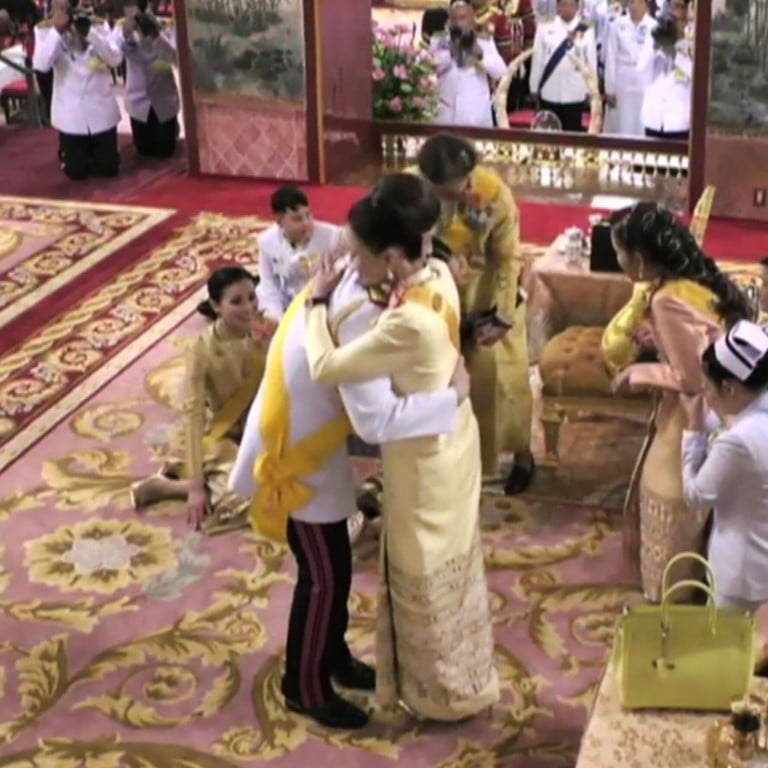
From Singapore to Thailand, why are political sibling rivalries such a huge draw?
- The Sukarnoputri sisters in Indonesia, Singapore’s Lee siblings and the royal family of Thailand electrify the public with their personal and electoral spats
- These family feuds are particularly riveting in countries where politics are elitist or staid, according to an analyst
But blood does not always bind siblings in politics.
Rachmawati is known as a staunch critic of her sister. During last year’s bruising legislative and presidential elections, Rachmawati – as a senior member of the opposition Great Indonesia Movement Party (Gerindra) – campaigned against Megawati. The PDIP prevailed in the end, winning the most seats in parliament.
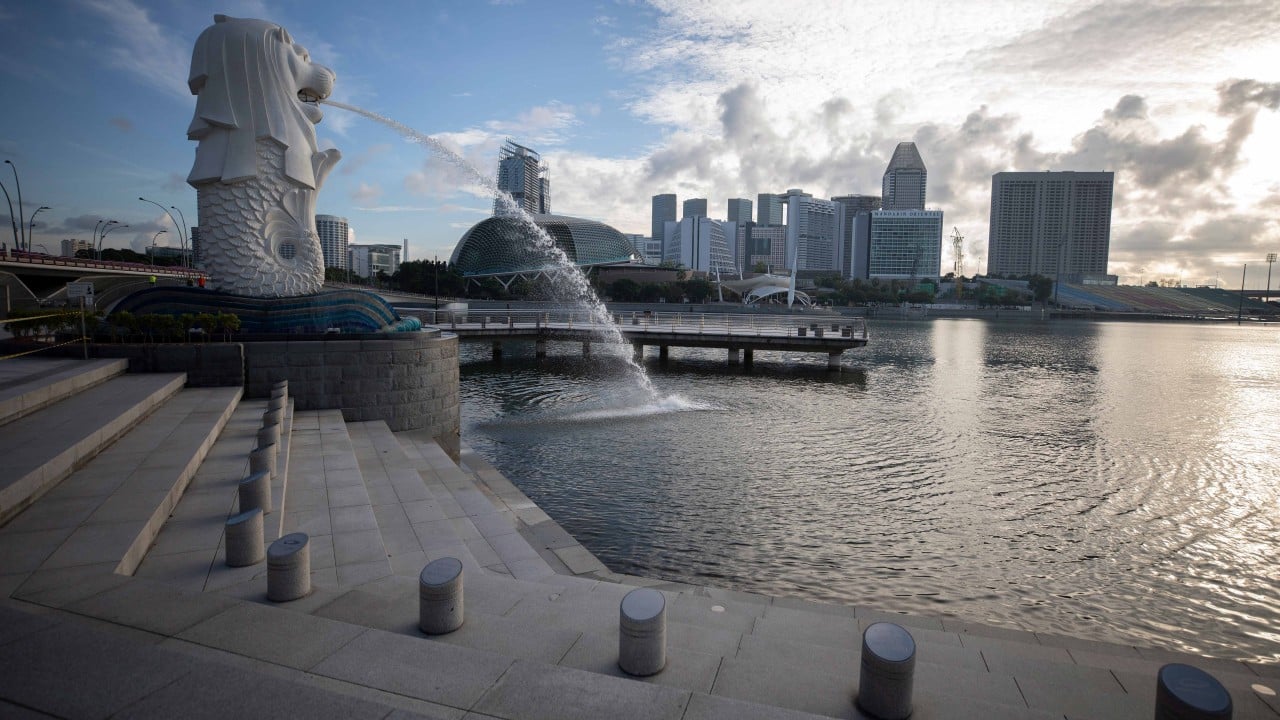
03:34
Singapore's ruling People’s Action Party seeks vote of confidence in upcoming general election
Lee Hsien Yang, 62, the younger son of the island nation’s founding father Lee Kuan Yew, is not standing as a candidate, but has urged voters to end the parliamentary supermajority of the ruling People’s Action Party (PAP), which he said had given it too much power.
Across Southeast Asia, from Thailand to Indonesia, family feuds or sibling rivalries among the region’s ruling elites never fail to rivet public attention.
“In countries where politics are very elitist or staid, the family disputes are entertaining,” said Professor Zachary Abuza, who specialises in Southeast Asia studies at the Washington-based National War College.
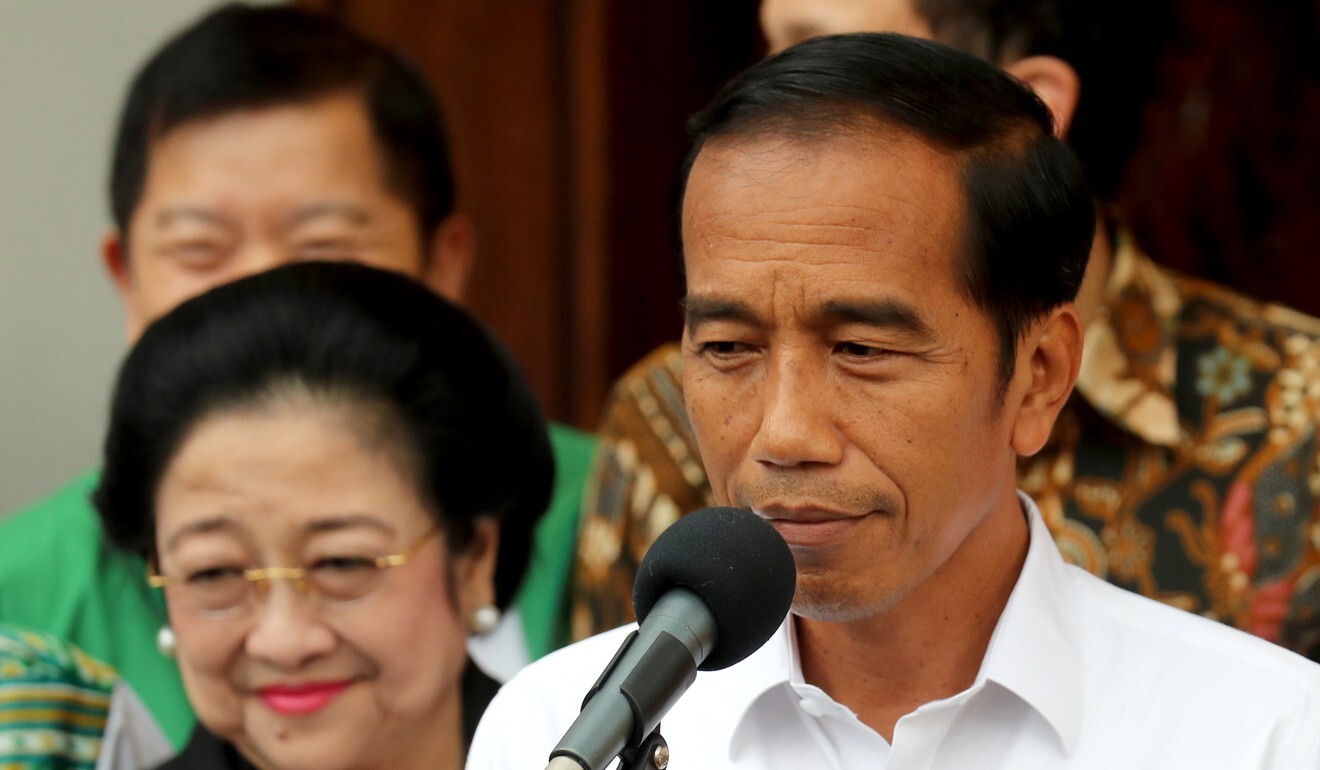
Abuza said families were microcosms of society, and “all cultures have political families … even those that were founded on the principle of not having them, like the United States. Politics becomes a family business.”
In the likes of Thailand and the Philippines, it is common for the children of elected officials to run for, and often win, legislative seats. But when there are major rifts in the family that see siblings join the opposition, that is beyond politics, according to Abuza. “That is a deep-seated and long-standing family dispute erupting onto a very public stage,” he said.
Felix Tan, a Singapore-based associate lecturer at SIM Global Education, said the Lee family feud was interesting to Singaporeans and people around the world as it unearthed “the dark side of the almost-perfect family”.
What’s behind the Singapore first family’s public feud?
“[It] is almost like Singapore’s very own Kennedy or Bush [families],” he said, referring to the former first families in the United States. “It shows everyone that they are mere mortals who are still fallible to family squabbles.”
The younger Lee’s decision to join the opposition party would be perceived by some Singaporeans as an epic battle, Tan said, adding that Lee Hsien Yang had made some valid comments about the governing of the country that most Singaporeans agreed with but were not vocal about.
Still, Tan stressed that the election should not be connected to the family feud in any way as Singapore’s future was at stake. While Singaporeans seemed interested in the row, he described them as “mere observers betting on who will become victorious” in this unfolding drama.
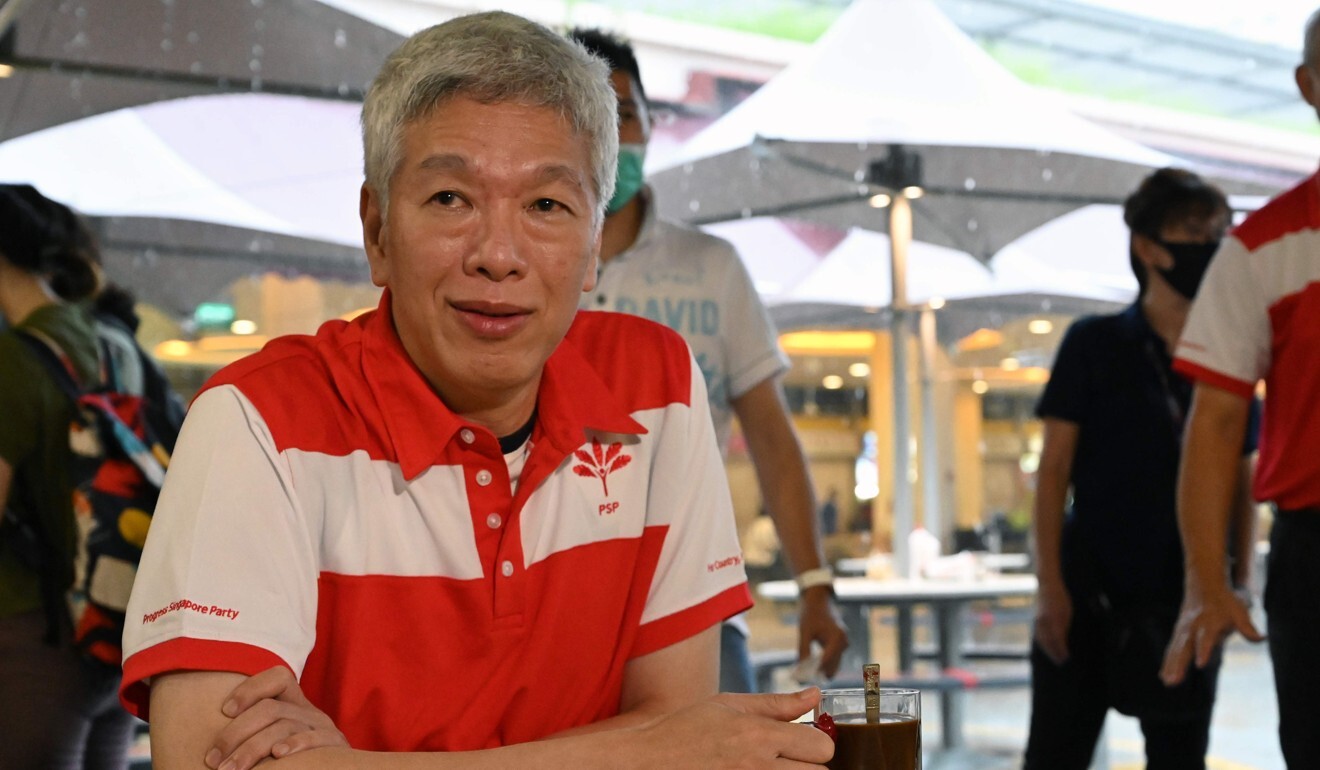
In the likes of Thailand and the Philippines, it is common for the children of elected officials to run for, and often win, legislative seats. But when there are major rifts in the family that see siblings join the opposition, that is beyond politics, according to Abuza.
“That is a deep-seated and long-standing family dispute erupting onto a very public stage,” he said.
In Indonesia, the differences between sisters Megawati from the PDIP and Rachmawati from Gerindra are seen as being personal rather than ideological, according to Dodi Ambardi, a social and political science lecturer at the University of Gadjah Mada in Yogyakarta.
“The ideology [of their parties is] not that different. Both parties talk about the ‘small people’ and workers. I think it is a personal competition that has crept into the political sphere,” he said.
Election blow for Shinawatras as court dissolves Thai Raksa Chart party
Megawati shot to prominence in the early years of that decade when she was ousted as the leader of the Indonesian Democratic Party (PDI) by the government of then president Suharto, whose regime was known as the New Order.
“From that moment, Megawati was seen as a symbol of resistance against the New Order,” said Dodi, pointing out Rachmawati found little success with other political parties before joining Gerindra.
According to Airlangga Pribadi, a lecturer at Airlangga University in Surabaya: “Rachmawati did not have a historical opportunity to become a symbol of the struggle of the ordinary people during turbulence, crisis and political transition.”
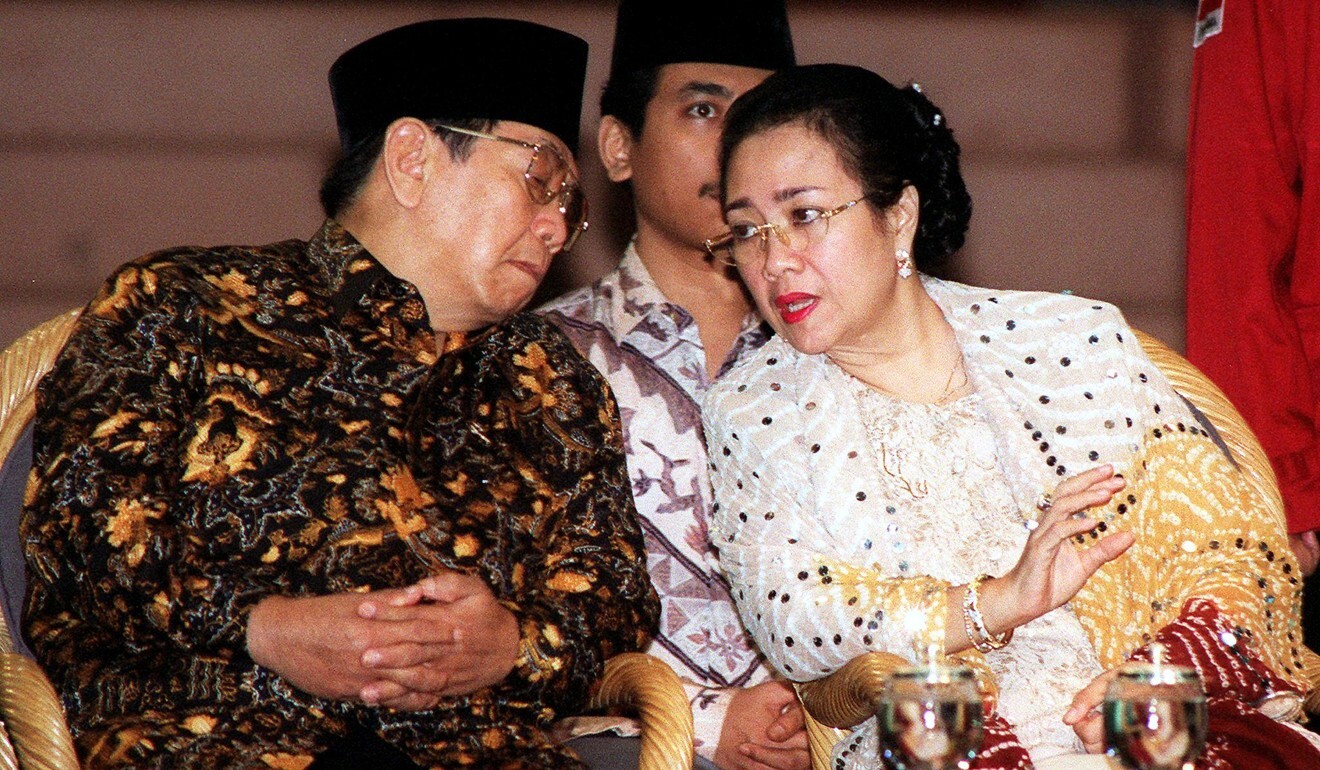
Azmin, 55, who won, at the time told reporters Azwan, 54, had the “right to contest in an open, democratic election”.
Oh Ei Sun, a senior fellow at the Singapore Institute of International Affairs, said political sibling rivalries in Malaysia “must not be taken too seriously”, as seasoned political observers saw them as more of political families hedging their bets in various political factions.
How Anwar Ibrahim and Azmin Ali’s mentor-protégé relationship turned sour
He cited the case of the Kitingan brothers, Joseph Pairin and Jeffrey, 79 and 72 respectively, who ran against each other in the eastern state of Sabah in 2018.
“By the time results came out on election night, they were sitting together on the same side already,” Oh said.
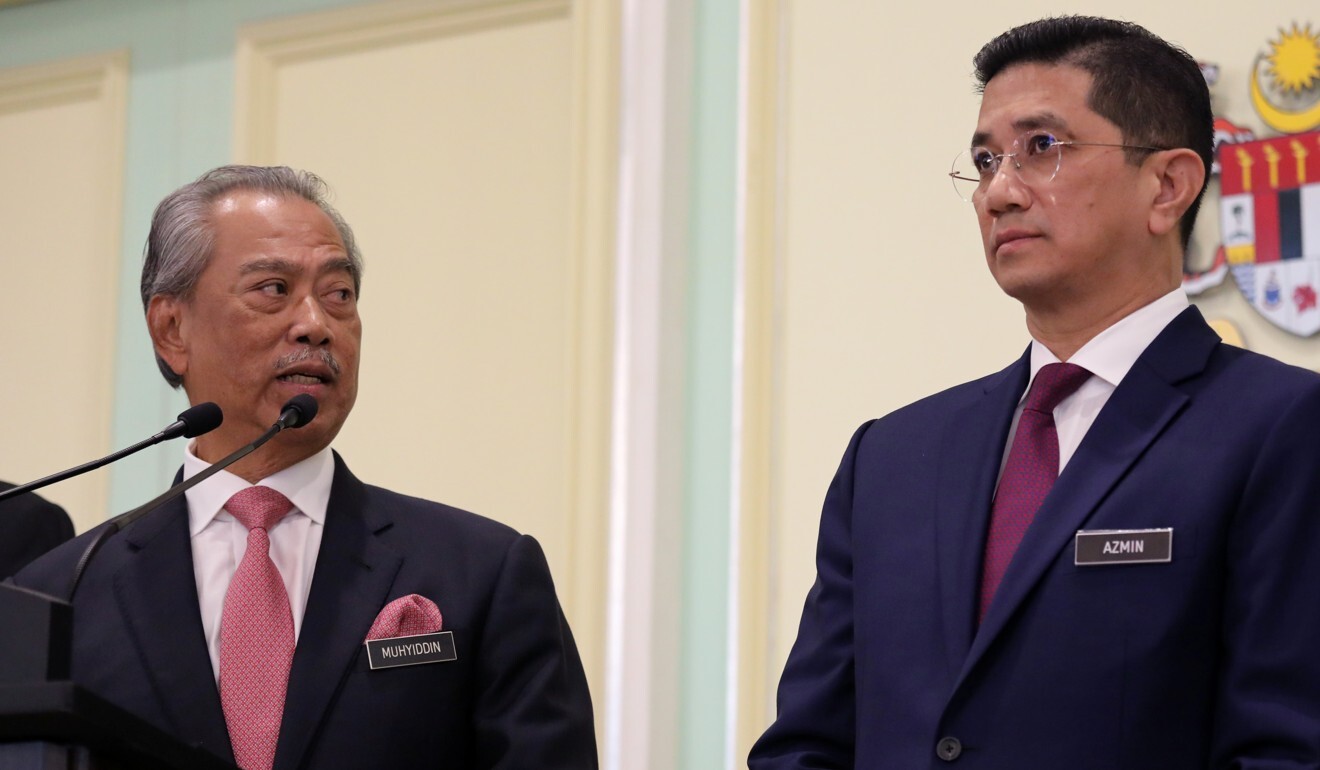
“She was sympathetic to the Shinawatra family, two of whom were deposed by coups,” he said, referring to former prime ministers Thaksin and Yingluck. “It’s a shame, as her prime ministership could have finally moved Thailand beyond the cycle of military-dominated politics.”
But do political sibling rivalries hinder or foster democracy and political development? To Abuza, it depends on the country.

